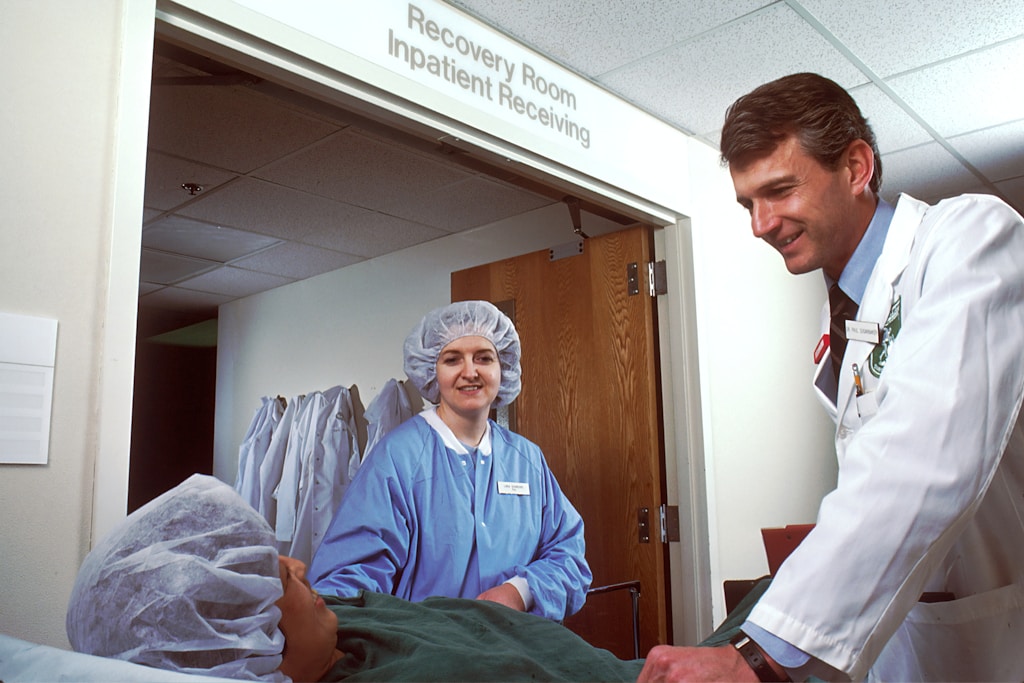Hello! Today's post is the second half of my rough draft of Chapter 1 of the book I am writing. It is still a work in progress, so I am open to any thoughts or suggestions. If you missed part 1, you can find it here: Caregiver's guide to aging in place part 1. Also I repeated the last paragraph from last week as the first paragraph from this week to give a reminder of where we left off.
It is a situation that is very challenging for hundreds of reasons, but mostly because of the unknown. What happens next? How does the healthcare system work? Who’s going to pay for this? These are good questions without easy answers. Often we have to learn the process of navigating the healthcare system and becoming caregivers by experience. Hopefully you can learn some of the difficult aspects from someone else’s experience. Someone who has been through this process on both sides. As family/caregiver and as physical therapist caring for those in need of rehab.

That happens to be me. I have been a Doctor of Physical Therapy (DPT) for over a decade and have devoted my career to caring for the elderly and educating the primary caregivers of the elderly. That’s you! I have been writing the weekly blog Keep Mom Safe at Home since 2020. I also was the primary caregiver for my Mom during her last eight weeks of life after it became obvious we were headed for the end, and my father was burned out after being her caregiver for 1 year + as she slowly died of uterine cancer. I owe a lot of thanks to my former boss and close friend Aaron Hasten for supporting me during that time away from work. Well from my day job, caregiving is definitely work, but hopefully you will find it to be as rewarding as I did, to be able to care for your loved one. My mother spent so much time and energy on me, it was a special opportunity that I wouldn't trade for the world to be able to be with her during that time. That doesn't mean it is or was easy, but there are definitely lots of memories and shared experiences I took away from that time.

I have also been fortunate enough to help my grandparents age in place for as long as safely possible. My role with my grandparents has been much smaller as the distance between us has made hands on caregiving impossible much of the time. But my mother's parents lived safely at home together until they were 90. My aunt and uncle and cousins played a huge role in their ability to safely age in place. My grandmother on my fathers side, lived by herself for many years before relenting and moving into an independent living facility when it became less safe to remain at home alone. My uncle was and still is her primary caregiver and she was very fortunate to have him close by and willing and able to assist.
My wife had one grandparent on each side who survived their spouse and they were able to safely remain at home aging in place until their early to mid 90’s. Their children were their primary caregivers, but I was able to give some recommendations along the way. There's also a great "WHO'S LEGS ARE THESE!??!!?" story I will tell if you ask.
So all that to say, here we are. You have found yourself thrust into the role of caregiver, or your role as caregiver has become more involved. Your loved one is in the hospital. What should you do next?
Read this book! Yes, that is a next step, but while your parent is in the hospital, you need to gather as much information as you can. Write down a list of questions for the health care providers. A sample of a few questions that may be important can be found at: XXXXXXXXXXX. Review that list, add to it, make it your own. You know your parent better than anyone else. Ask a couple questions of each provider you interact with, but understand that they are busy. Keep the questions short and direct as possible. Refer back to the previous list for a look at the way to phrase good questions for the medical team.

Talk to a friend or a family member who works in healthcare. They will be able to give you ideas of which questions to ask which staff members. If you don’t know anyone in the medical field, there are lots of caregiver groups on facebook. Join one and ask the group. There are often people who will provide a thoughtful response to your inquiry.
Next keep pad and paper or a note app on your phone handy. Write down their responses. Don’t be rude and slow down their answers to write them word for word, but quickly repeat back what you understood from their answer and then quickly write it down after the conversation is complete. Pay careful attention to when they give you another person to ask that question to, “maybe save that one for the doctor or that would be good to ask social services.”

For example;
To go back to the story at the beginning, it can go one of two ways:
Great news! After a few days in the hospital, she’s awake and alert. She is having little difficulty talking and swallowing. She is able to get out of bed with very little help and walk down the hall with supervision. She needs a little help with dressing and bathing but she appears on the way back to her “normal self”.
or
A few days have past, and your loved one is recovering. She is more alert for periods of time but clearly very fatigued as well. She can nod to respond to yes/no questions but her speech is difficult and garabled. Therapy has come to visit and has helped her sit up in the recliner for a couple hours at a time, but she is not doing much else. Maybe walking short distances with 2 person assistance. She needs help to get on and off the commode as well as someone to dress her.
Either scenario is possible, along with infinite other possibilities, but what happens next happens quickly. Discharge!
Chapter 2 is about discharge to the next level of care. Sounds exciting right? Hopefully this book will help a few people navigate the healthcare system and then transition to the most important stuff which is to help our loved ones safely age in place and improve their quality of life and their remaining years at home.
That's all for today.
Take care, keep mom safe at home and have a great day!
Winn